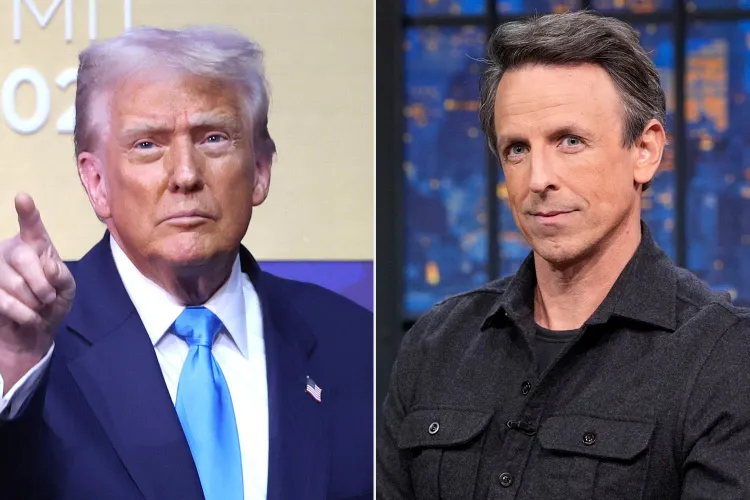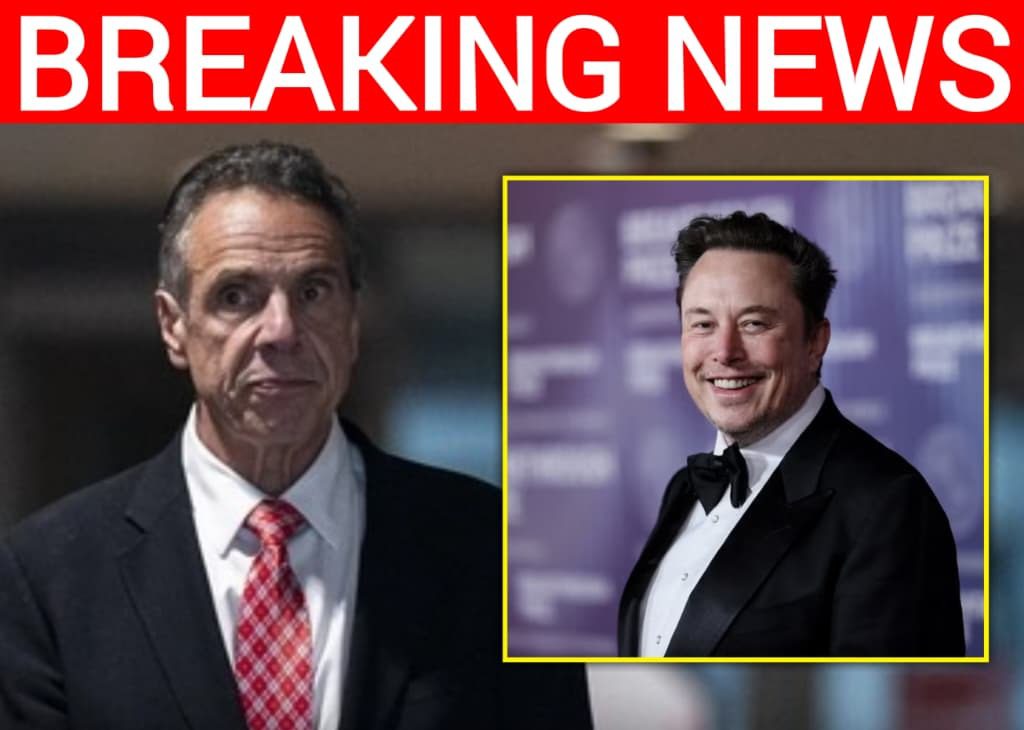Donald Trump Sparks Controversy After Claiming Seth Meyers Mocking Him on Late Night Is “Probably Illegal”
In another fiery exchange between politics and late-night television, former President Donald Trump is once again making headlines after suggesting that Late Night with Seth Meyers mocking him could be “probably illegal.” The comment, shared on Truth Social over the weekend, quickly went viral, reigniting the long-running feud between Trump and the entertainment industry.
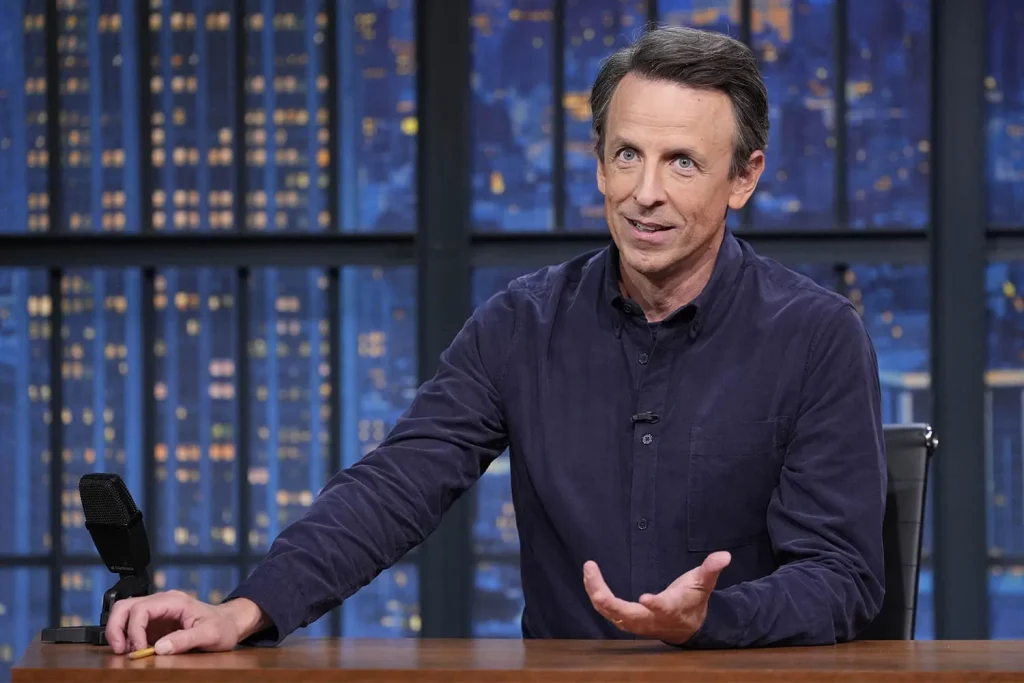
The post, written in Trump’s characteristic style, targeted Seth Meyers directly — calling him “the least talented person to ever perform live on television” and accusing the NBC host of being “100% anti-Trump.” Trump continued, “NO TALENT, NO RATINGS, 100% ANTI-TRUMP, WHICH IS PROBABLY ILLEGAL!!!” The all-caps message, punctuated with exclamation marks, drew both amusement and concern online.
Trump’s comments followed a recent episode of Late Night in which Meyers mocked Trump’s remarks during a campaign-style appearance in Japan, where he discussed U.S. Navy catapult systems on aircraft carriers. Meyers joked that Trump seemed “more interested in catapults than the actual military,” prompting laughter from his studio audience. It wasn’t the first time the comedian used Trump’s own words for satire — but this time, the former president fired back harder than ever.
In the post, Trump didn’t just attack Meyers’ humor but implied that the show’s political tone crossed a legal or ethical line. While no law prohibits political satire — in fact, it’s one of the most protected forms of free speech in the United States — Trump’s statement has once again sparked debate about the boundaries between media criticism and political sensitivity.
According to People and Entertainment Weekly, the message was part of a broader rant in which Trump criticized NBC, accusing the network of promoting what he called “fake comedy” designed to attack conservatives. “NBC should be ashamed of itself for keeping this loser on television,” he reportedly wrote. The post, filled with insults and claims of bias, mirrors a pattern Trump has followed since his early presidency — portraying entertainment and news outlets as enemies working to discredit him.
Seth Meyers, known for his sharp political humor and steady criticism of Trump since his days on Saturday Night Live, has not yet responded publicly to the post. However, fans of Late Night were quick to share clips of his past segments mocking Trump’s tweets, many adding sarcastic comments like, “So free speech is illegal now?”
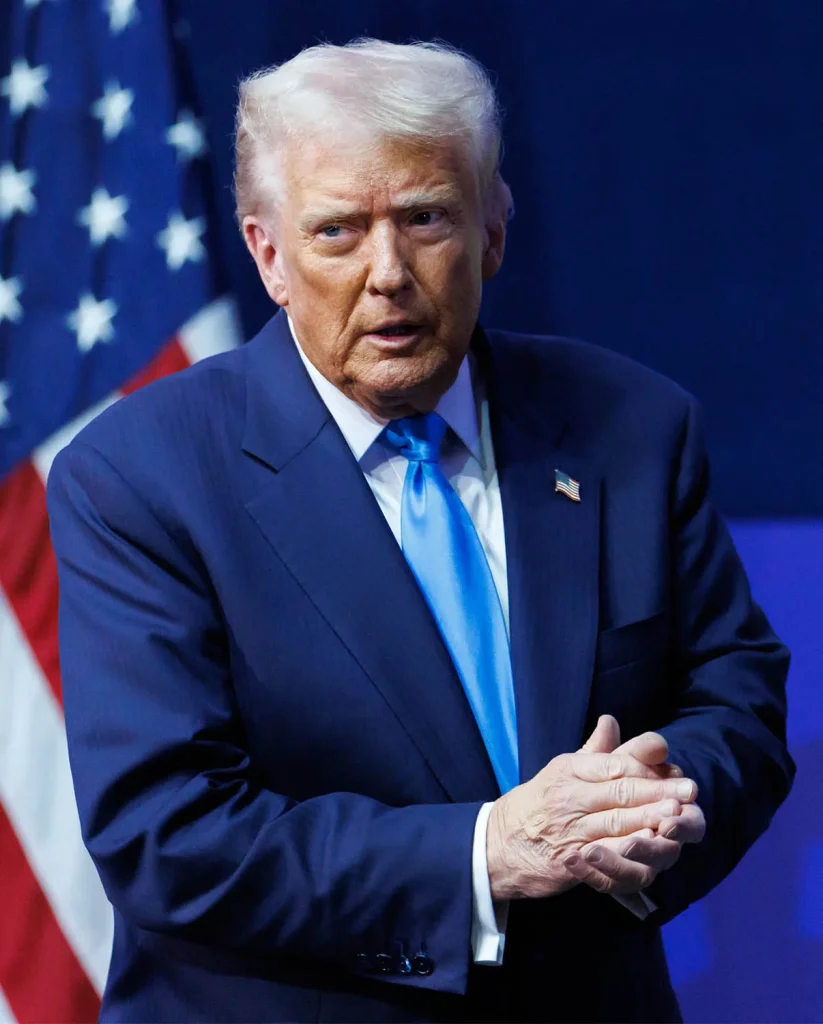
Trump’s relationship with late-night television has always been complicated. Before entering politics, he was a frequent guest on shows like The Tonight Show and Late Show with David Letterman. But since his 2016 campaign, he has been the consistent target of political humor. Hosts like Meyers, Jimmy Kimmel, and Stephen Colbert have all made Trump the centerpiece of nightly monologues — sometimes with biting criticism.
Yet Trump’s feud with Meyers is more personal than most realize. Their history stretches back to 2011, when Meyers roasted Trump during the White House Correspondents’ Dinner — years before Trump became president. Meyers famously joked, “Donald Trump has been saying that he will run for president as a Republican — which is surprising, because I just assumed he was running as a joke.” The line visibly irritated Trump, who sat stone-faced during the segment. That night, as many political observers later noted, was a turning point — a moment that reportedly intensified Trump’s determination to pursue the presidency seriously.
Fast forward to 2025, and the tension remains. Meyers’ humor has continued to center on Trump’s mannerisms, his legal troubles, and his combative rhetoric. Trump, meanwhile, has used his social media platforms to strike back, calling comedians “unfunny,” “sick,” and “obsessed.” His latest post marks one of his strongest rebukes yet — one that touches not just on personal insult but on legality itself.
Legal experts were quick to respond to Trump’s “probably illegal” remark. Constitutional lawyers pointed out that satire, even when offensive, is firmly protected under the First Amendment. “Mocking political figures has been part of American democracy since the 18th century,” said media law expert Dr. Rita Johnson. “If criticism of a politician could be made illegal, democracy as we know it would collapse overnight.” Others noted that Trump’s use of the word “probably” leaves the statement ambiguous — more bluster than legal argument — but also part of a broader pattern in his language, where hyperbole often replaces substance.
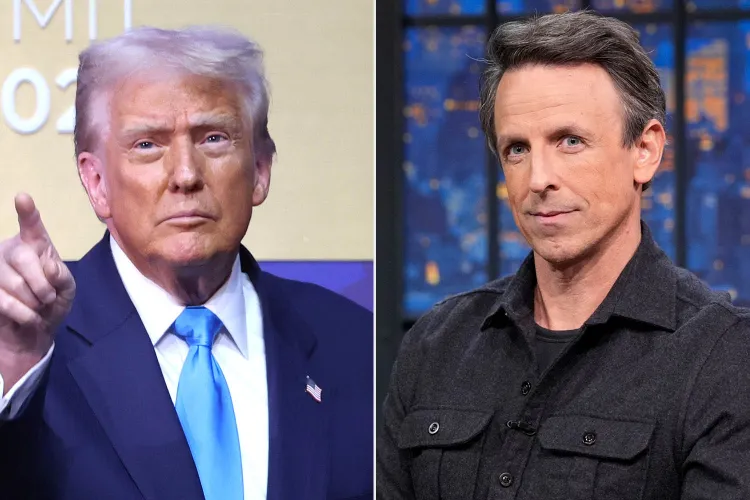
Still, Trump’s supporters rallied behind him. Within hours, the post had garnered hundreds of thousands of reactions on Truth Social. Many commenters echoed Trump’s sentiment that mainstream television unfairly targets him and other conservatives. “Every late-night show is anti-Trump propaganda,” one user wrote. “They’re not doing comedy anymore; they’re doing politics.”
Critics, however, saw the post as an attempt to stoke resentment against the press. MSNBC commentator Joy Reid remarked that Trump “once again confuses personal embarrassment with illegality,” while political analyst David Frum noted that “calling criticism ‘illegal’ is precisely the kind of authoritarian thinking democracies must guard against.”
Interestingly, Trump’s feud with late-night television extends beyond Meyers. Earlier this year, he celebrated Stephen Colbert’s Late Show ending its run after more than a decade, calling it a “terrible program that failed because of Trump Derangement Syndrome.” He has also repeatedly accused Jimmy Kimmel of being “a no-talent clown” who “used to be funny before he became political.” The persistence of these feuds suggests that Trump views television satire not as entertainment but as a form of political warfare.
Seth Meyers has long leaned into his role as one of Trump’s chief comedic opponents. On Late Night, his recurring segment “A Closer Look” routinely dissects Trump’s speeches and posts in detailed, sarcastic fashion. Meyers’ dry humor and analytical tone have earned him praise from progressives, though conservatives often accuse him of bias. Despite declining ratings across the late-night genre, Meyers’ show has remained a consistent platform for political commentary, especially on issues surrounding Trump’s influence and post-presidency behavior.
The irony is that Trump’s outbursts often give comedians more material. Within hours of the Truth Social post, Late Night fans were predicting that Meyers would respond on air — likely turning the controversy into another viral monologue. “Every time he says something like this, he gives the writers gold,” one fan wrote on X (formerly Twitter). Another quipped, “Trump saying it’s illegal to make fun of him is the most Seth Meyers joke ever — he’ll run with it for a week.”
Beyond entertainment, the exchange highlights deeper tensions over free speech, media polarization, and political sensitivity in the post-Trump era. While comedians have always mocked presidents — from Gerald Ford’s clumsiness to George W. Bush’s malapropisms — the Trump era has elevated satire into a flashpoint for cultural conflict. Trump’s unique ability to dominate headlines ensures that every late-night joke about him can spark national conversation.
Yet there’s a paradox at play. Trump’s very outrage about being mocked ensures that he remains part of the media cycle — the thing he claims to despise most. His critics argue that this is by design: outrage sustains his brand, keeps his name trending, and mobilizes his supporters. For Meyers and other hosts, Trump’s reactions only fuel the comedic loop, guaranteeing that the battle between politics and entertainment continues nightly.
As for whether Trump’s “probably illegal” comment will have any real-world consequences, legal scholars are unanimous — it won’t. “It’s bluster,” said Harvard Law School’s Professor Alan Keller. “He knows it, the networks know it, and the audience knows it. But that doesn’t mean it’s harmless. When leaders challenge the legitimacy of free speech, even jokingly, it chips away at public trust in the very rights that protect us all.”
For now, Seth Meyers has remained silent — at least publicly. But those familiar with his writing process say that silence likely won’t last. If his history with Trump is any indication, Meyers will soon turn the “illegal mockery” comment into a full segment — one that will, inevitably, make Trump even angrier.
The cycle, as always, continues: Trump lashes out, comedians react, and America tunes in. It’s a symbiotic relationship neither side seems eager to end. In the polarized theater of American politics, outrage is the script, and both Trump and Meyers are masters of their respective roles — one as the provocateur, the other as the satirist holding up a mirror to the chaos.
